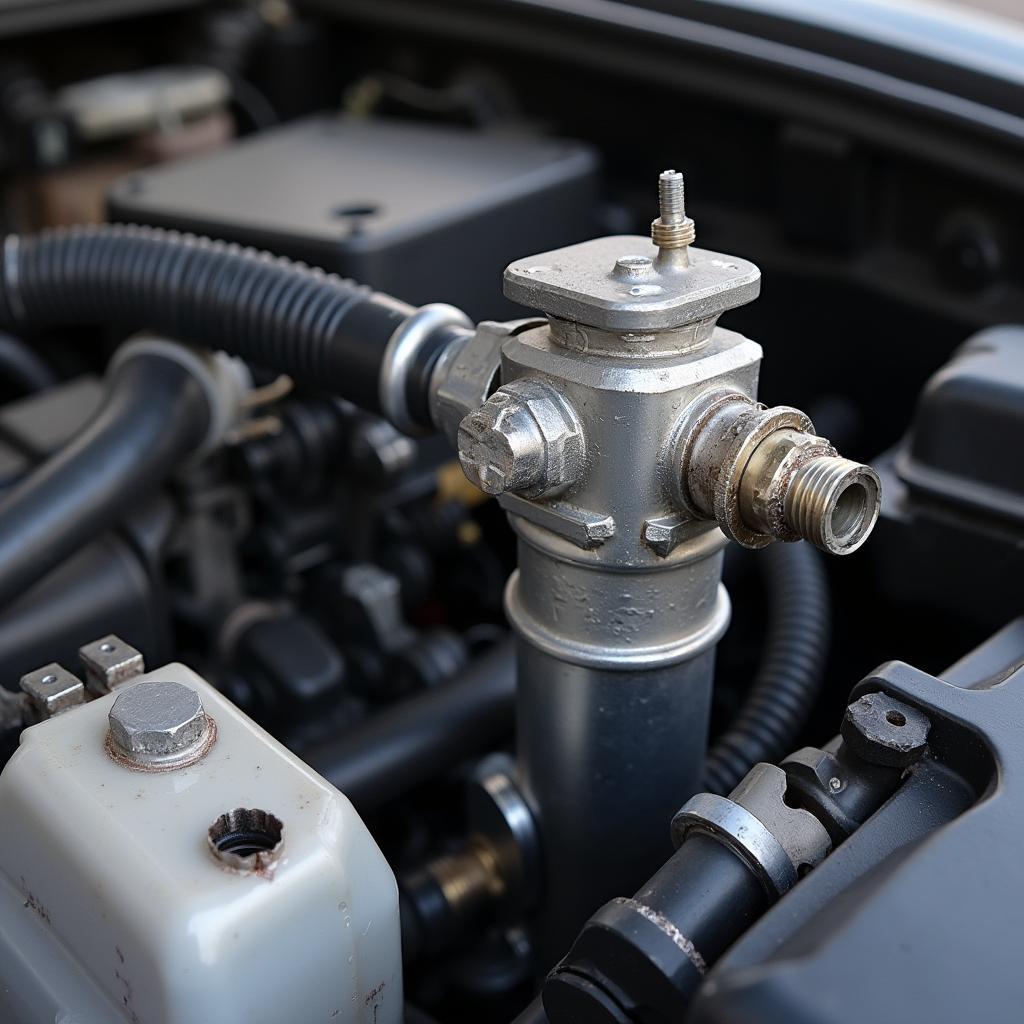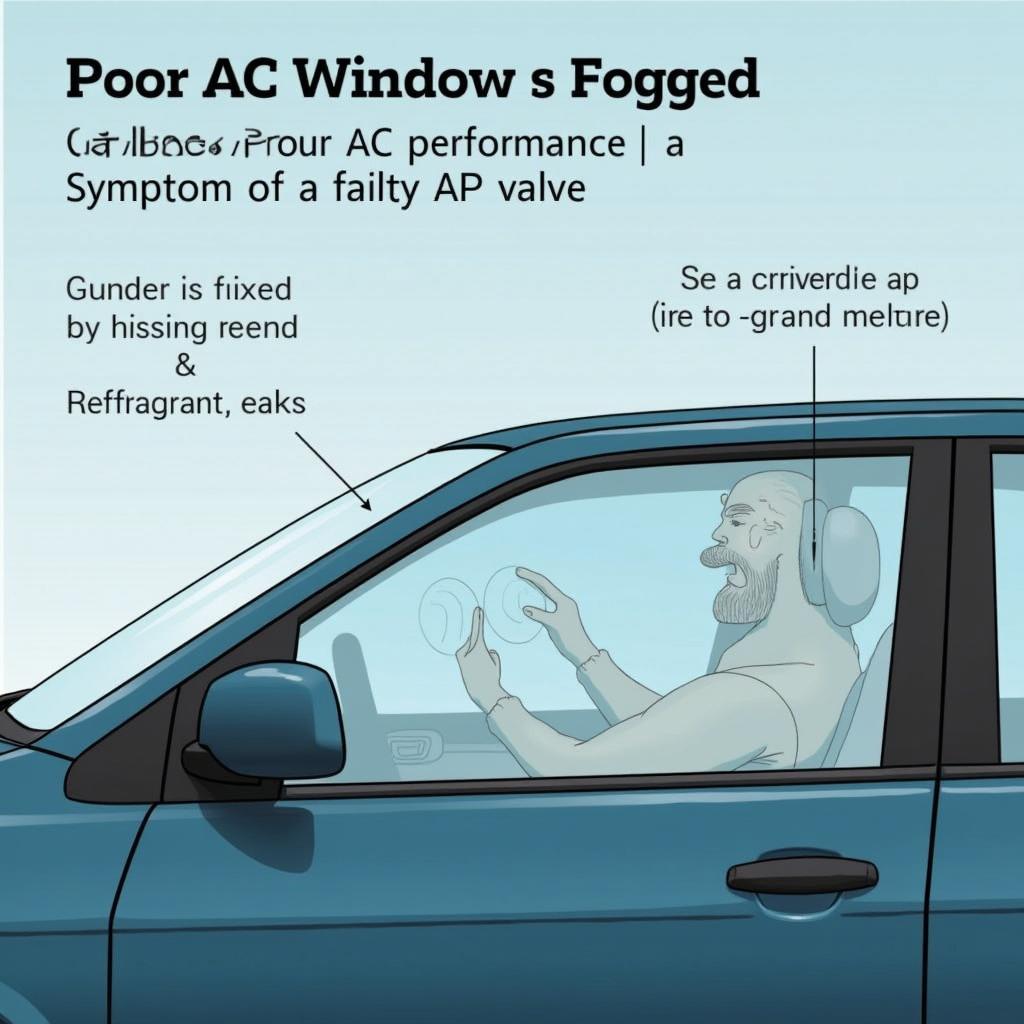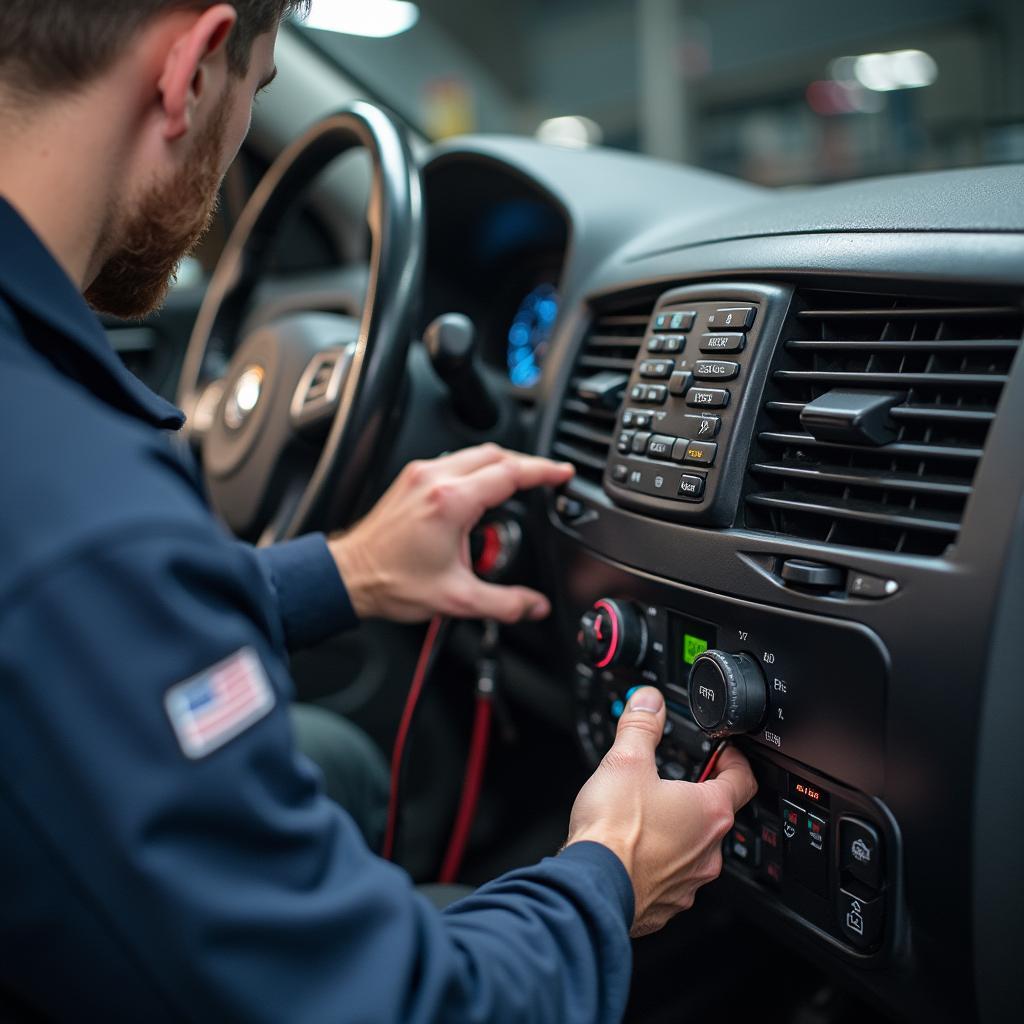Understanding the intricacies of your car’s air conditioning system can feel like navigating a maze. One essential component often overlooked is the AP valve, short for “air conditioning pressure valve”. This small but mighty valve plays a crucial role in regulating the pressure within your AC system, ensuring optimal performance and preventing costly damage.
What is an AP Valve and Why Is It Important?
The AP valve, also known as a pressure relief valve, acts as a safety net for your car’s AC system. It monitors the pressure levels within the system and automatically releases excess pressure when needed. This prevents damage to other AC components, such as the compressor, condenser, and hoses, which can occur due to excessive pressure buildup.
 Car AC AP Valve Location
Car AC AP Valve Location
Common Symptoms of a Faulty AP Valve
A malfunctioning AP valve can lead to a range of issues with your car’s AC system. Recognizing the signs of a potential problem can save you time, money, and discomfort, especially during hot weather. Here are some common symptoms to watch out for:
- Poor AC performance: If you notice your AC isn’t blowing cold air as effectively as it used to, a faulty AP valve could be the culprit.
- Intermittent AC cooling: Experiencing moments of cold air followed by warm air could indicate a pressure fluctuation within the system, potentially caused by a failing AP valve.
- Hissing or leaking sounds: Unusual noises coming from your AC system, such as hissing or leaking, might indicate a problem with the AP valve, especially if accompanied by a refrigerant leak.
 Symptoms of a Faulty AP Valve in Car AC
Symptoms of a Faulty AP Valve in Car AC
When to Seek Professional Auto Air Service
If you suspect your car’s AP valve is malfunctioning, seeking professional auto air service is crucial. Attempting to diagnose or repair the valve yourself without the proper knowledge and tools can lead to further damage and higher repair costs.
A qualified auto air service technician possesses the expertise and specialized equipment to accurately diagnose AP valve issues. They can:
- Perform a comprehensive inspection of your car’s AC system, including the AP valve.
- Accurately diagnose the root cause of the problem using pressure gauges and leak detection equipment.
- Recommend the necessary repairs or replacements, ensuring your AC system operates efficiently and safely.
Importance of Regular Auto AC Maintenance
Just like any other system in your car, regular maintenance is key to keeping your AC running smoothly and preventing unexpected breakdowns. Routine maintenance typically includes:
- Inspecting the AP valve for signs of wear and tear.
- Checking refrigerant levels and recharging if needed.
- Cleaning the condenser and evaporator coils.
- Replacing cabin air filters.
 Professional Car AC Service and Maintenance
Professional Car AC Service and Maintenance
By adhering to a regular maintenance schedule, you can extend the lifespan of your car’s AC system, including the AP valve, and enjoy reliable cool air for years to come.
Conclusion
The AP valve might be a small component, but its role in your car’s AC system is significant. Understanding its function and recognizing the signs of potential problems can help you address issues promptly and prevent costly repairs. When in doubt, always consult with a qualified auto air service provider to ensure your car’s AC system stays in peak condition.
Remember, a well-maintained AC system not only keeps you cool and comfortable but also contributes to a safer and more enjoyable driving experience.
FAQs about AP Valves and Auto Air Service:
Q: How often should I have my car’s AC system serviced?
A: It’s generally recommended to have your car’s AC system serviced at least once a year, preferably before the start of the summer season.
Q: Can I add refrigerant to my car’s AC system myself?
A: While DIY refrigerant recharge kits are available, it’s best to leave this task to professionals. They have the proper equipment and expertise to ensure the correct refrigerant type and charge amount.
Q: How much does it cost to replace an AP valve?
A: The cost of replacing an AP valve varies depending on the make and model of your car. On average, you can expect to pay between [Price Range] for the part and labor.
Q: How can I tell if my car’s AC system needs a recharge?
A: Some signs that your AC system might need a recharge include warm air blowing from the vents, a noticeable decrease in cooling performance, and hissing sounds coming from the AC system.
Q: Can a faulty AP valve damage my car’s engine?
A: While a faulty AP valve won’t directly damage your engine, it can lead to AC system failure, which can indirectly affect your engine’s performance, especially during hot weather.
Looking for more information on auto repair and services? Check out these helpful resources:
- Auto Repair Auto Repair Services Offered
- Auto Transmission Service Manual
- Auto Connection Service
- Air Vacum Auto Service Companies
- V8 Auto Service
Need immediate assistance with your car’s AC system? Contact us now!
WhatsApp: +1(641)206-8880
Email: [email protected]
Our dedicated team is available 24/7 to answer your questions and provide expert solutions.


